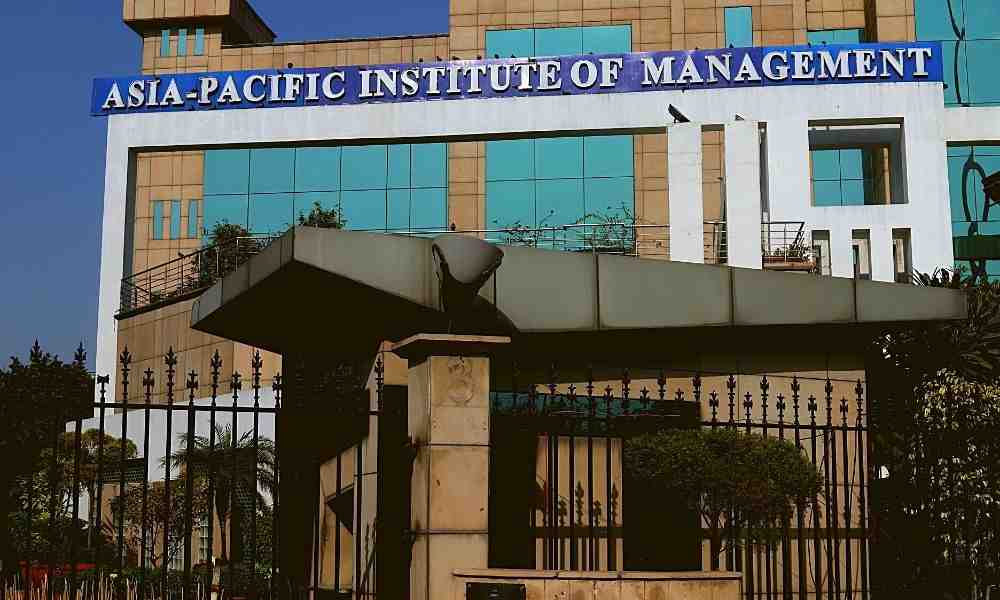The much-awaited and widely applauded New Education Policy (NEP) 2020 is the first education policy of the 21st century. It has replaced the thirty-four-year-old National Education Policy of 1986. The New Education Policy 2020 has been approved by the Union Cabinet and has renamed the ‘HRD Ministry’ as ‘Education Ministry’.
The visionary National Education Policy (NEP) 2020 aims to make the Indian education system more contemporary, flexible, and comprehensive, which would contribute to the transformation of the existing educational framework, thus making India a global knowledge superpower.

Well, known educationists and honorable chairman of Asia- Pacific Institute Of Management(AIM), Delhi, ‘Shri A.K. Shrivastava’ applauded the policy and said that, ‘National Education Policy, 2020 aims to create a revolutionary transformation making India into a vibrant knowledge society making both school and college education more holistic, skill-oriented and multidisciplinary. This policy would help the students to bring out their unique qualities and prepare them for a rapidly changing world’.
Benefits of New Education Policy 2020
Some of the important advantages of the New Education Policy 2020 are as follows:
• The New Education Policy would give more emphasis to students’ practical knowledge instead of just pushing them towards rote learning.
• The New Education Policy(NEP) has been introduced with an aim to strengthen research and innovation in the country, and thus help students to develop scientific temper from a young age.
• Curriculum content would be reduced in each subject and the main focus would be on key concepts, ideas, application, and critical thinking. Instructing and learning will be conducted in a more interactive manner.
• The NEP aims to make it easier to set up new higher educational institutes with quality standards that will be at par with the global institutes.

• Dedicated unit for advanced and internet learning: A committed unit to organize the structure of advanced foundation and digital content will be made in the MHRD to care for the e-instruction needs of both school and higher education. A complete set of recommendations for elevating and promoting online education has been made after the recent rise in pandemics, to guarantee readiness with alternative methods of quality education, where traditional modes of education are not possible.
• This will promote value-based education.
NEP would revolutionize the existing education system in the country as it focuses on making education accessible, equitable, inclusive, and comprehensive. So the policy with an inclusive framework focuses on the elementary-level of education to higher education in the country, starting with an objective of universalization of education from pre-school to secondary level with 100 percent Gross Enrolment Ratio (GER) in school education by 2030 and aims to raise GER in higher education to 50 percent by 2025.
‘Shri A.K. Shrivastava’ further added that ‘ NEP is a game-changer and harbinger in terms of directional change and sectoral changes, as it has the potential to regenerate the human capital of India, thus opening new roads for our country. Especially, inviting the attention on utilization of innovation and inclusion of technology for consistent learning. The policy has a multi-disciplinary and balanced outlook focussing on holistic education along with life-skills and immersive learning with special emphasis on skill development to improve the high employability rate among our students. The arrangement of e-courses in provincial dialects, interdisciplinary courses, marking of credits, autonomy to licensed schools, high performing Indian colleges encouraged to set up grounds in different nations are on the whole advances that would make India a genuinely global information superpower.

Already following this futuristic path, since more than two decades, Asia-Pacific Institute of Management has always endeavoured to develop strategic alliances with the prestigious institutions and universities of the world, which are leading in the education world. This vision serves manifold objectives to promote global exposure through faculty and student exchange programmes, joint research programmes, twinning programmes, and externally funded consultancy programmes. It further serves the requisite of enhancing academic standards to bring them at par with an international benchmark which is a major requirement for a B-School to succeed in the era of globalization of education. So we are already in collaboration with some top and esteemed colleges and universities of the world like the RUDN University, Russia, Indiana State University, USA, University of Northern Iowa, USA, Grant MacEwan College of Canada and many more, giving students the exposure and enhancing their knowledge and making them future-ready’.
In conclusion, we can say that NEP has made a great start to reform the Indian Education System, keeping in mind the current challenges the sector is facing. Not only this policy addresses the key concern areas like universalization of education from pre-school to secondary level but also refines the structure of reporting through the National Education Commission, which will be headed by the Prime Minister himself.









